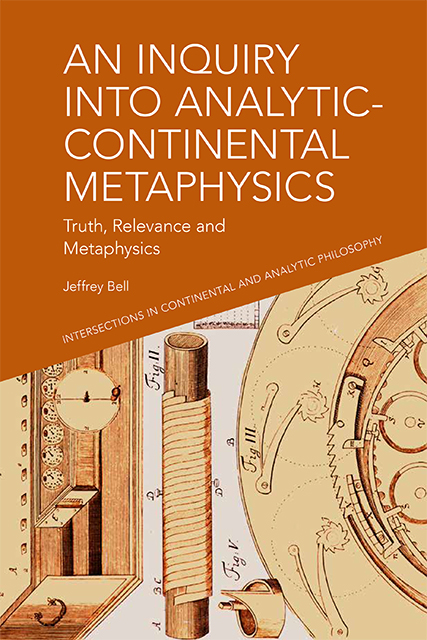Book contents
- Frontmatter
- List of Contents
- Acknowledgements
- Introduction
- §1 Problem of the New
- §2 Problem of Relations
- §3 Problem of Emergence
- §4 Problem of One and Many
- §5 Plato and the Third Man Argument
- §6 Bradley and the Problem of Relations
- §7 Moore, Russell and the Birth of Analytic Philosophy
- §8 Russell and Deleuze on Leibniz
- §9 On Problematic Fields
- §10 Kant and Problematic Ideas
- §11 Armstrong and Lewis on the Problem of One and Many
- 12 Determinables and Determinates
- 13 The Limits of Representational Thought
- 14 Learning from a Cup of Coffee
- 15 Carnap and the Fate of Metaphysics
- 16 Truth and Relevance
- Conclusion
- Bibliography
- Index
§5 - Plato and the Third Man Argument
Published online by Cambridge University Press: 25 October 2023
- Frontmatter
- List of Contents
- Acknowledgements
- Introduction
- §1 Problem of the New
- §2 Problem of Relations
- §3 Problem of Emergence
- §4 Problem of One and Many
- §5 Plato and the Third Man Argument
- §6 Bradley and the Problem of Relations
- §7 Moore, Russell and the Birth of Analytic Philosophy
- §8 Russell and Deleuze on Leibniz
- §9 On Problematic Fields
- §10 Kant and Problematic Ideas
- §11 Armstrong and Lewis on the Problem of One and Many
- 12 Determinables and Determinates
- 13 The Limits of Representational Thought
- 14 Learning from a Cup of Coffee
- 15 Carnap and the Fate of Metaphysics
- 16 Truth and Relevance
- Conclusion
- Bibliography
- Index
Summary
1. Plato's Theory of Forms
A version of the problem of relations (§2) that is found in Plato and Aristotle is most commonly known as the Third Man Argument, an argument that has been used against Plato's theory of Forms. We first find it in Plato's dialogue Parmenides, where Parmenides presents his understanding of Socrates’ theory of Forms, suggesting that it consists of the fact that ‘when there is a number of things which seem to you to be great, you may think, as you look at them all, that there is one and the same idea in them, and hence you think the great is one’ (132a1–4). There is thus one idea (or Form) that accounts for the fact that many particulars, e.g., horses, are seen as horses, or great things are seen as great, in that they each share in some way in the nature of this one Form. Socrates replies that this is indeed the case; he understands the nature of Forms in this way. It is at this point, however, that the problem of relations enters the scene, for the question now arises as to the nature of the relationship between these Forms and the many particulars that in some way instantiate them.
2. Vlastos on the Third Man Argument
This problem of relations – that is, the regress problem commonly known as the Third Man Argument (or TMA) – directly follows from Plato's theory of Forms. As Vlastos (1954) shows in his classic paper, the TMA arises as a result of two implicit premises at work in the Parmenides. The first is what Vlastos refers to (following the lead of A.E. Taylor [1916]) as the Self-Predication Assumption (SP). What is assumed, in short, is that ‘Largeness is itself large. F-ness is itself F’ (Vlastos 1954, 323). Without this assumption, one would not be able to identify what the Form has in common with the particular, and hence see the particular as exemplifying or instantiating this Form. The second assumption is the Nonidentity Assumption (NI), whereby the characterising trait, F-ness, is taken to be nonidentical with the particular that has this trait. As Vlastos puts it, ‘If x is F, x cannot be identical with F-ness’ (325).
- Type
- Chapter
- Information
- An Inquiry into Analytic-Continental MetaphysicsTruth, Relevance and Metaphysics, pp. 19 - 27Publisher: Edinburgh University PressPrint publication year: 2022

